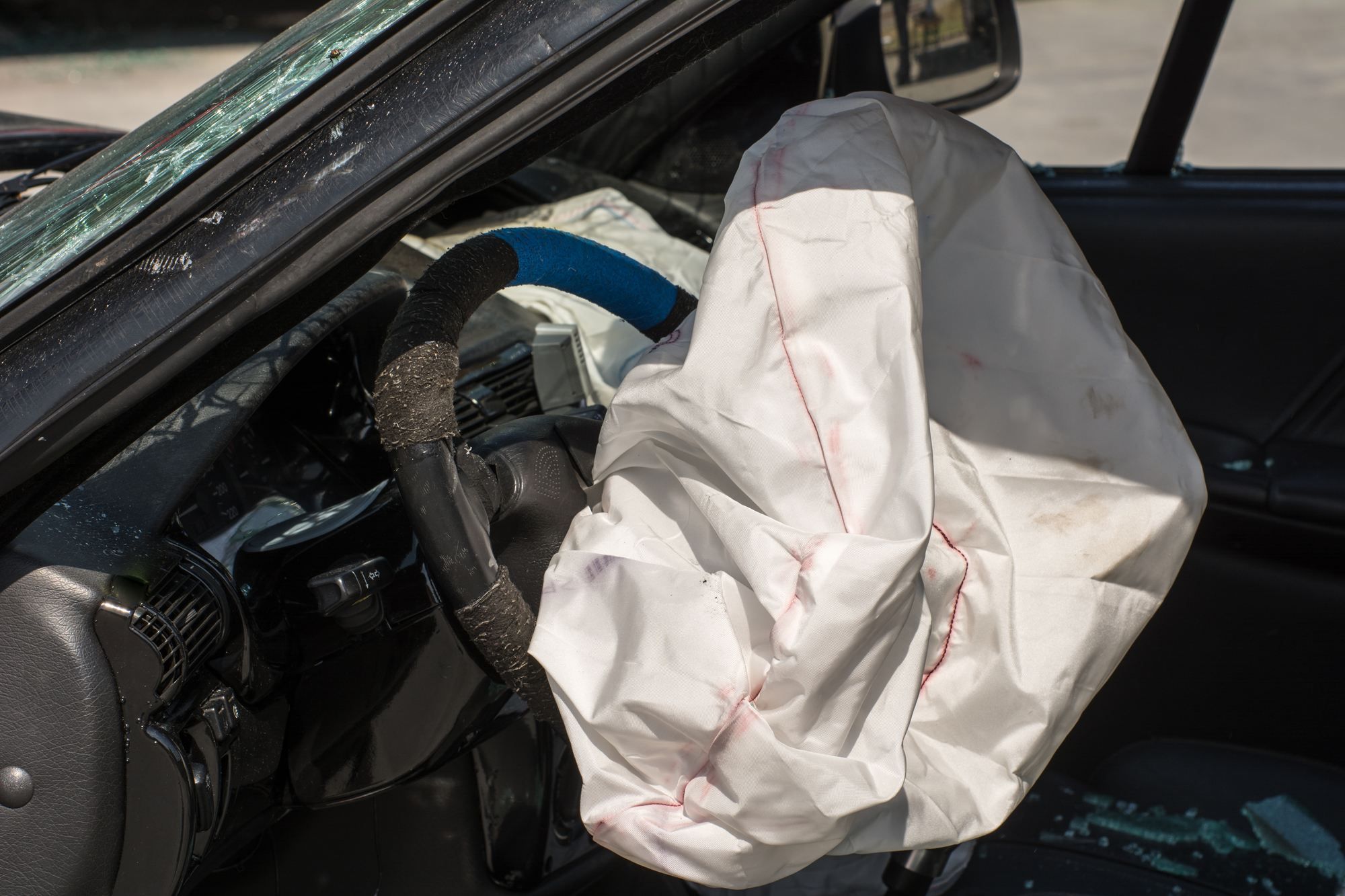Top Class Actions’s website and social media posts use affiliate links. If you make a purchase using such links, we may receive a commission, but it will not result in any additional charges to you. Please review our Affiliate Link Disclosure for more information.
A driver was killed last month when a Takata air bag inflator exploded in a Honda Civic, making it the 26th death to be linked to the faulty air bags vehicle defect worldwide.
The incident happened during an automobile accident on Aug. 20 in Mesa, Ariz., according to reports by the Associated Press. Honda confirmed the incident in a statement released by the company Sept. 3.
Few details have been reported about the accident, but Honda’s statement said the driver was killed when the driver’s side Takata air bag inflator ruptured during the crash. The driver was not the registered owner of the vehicle.
The passenger side air bag inflator also ruptured and caused a small fire to break out, but no one was sitting in the passenger seat and so that explosion did not cause any injuries, Honda said.
The U.S. National Highway Traffic Safety Administration also investigated the accident.
Tragic History of the Takata Air Bag
Honda said it has confirmed a total of 15 deaths and more than 200 injuries linked to the Takata air bag malfunction in the U.S. Two other fatalities occurred in Ford vehicles, bringing the total number of deaths in the U.S. to 17. Nine other fatal Takata air bag explosions have been reported in Malaysia and Australia.
Most of the incidents involving Hondas have been older model cars, the most recent being a 2002 Civic. That is considered “one of seven ‘Alpha’ Honda models from the early 2000s with frontal airbags that are most likely to rupture during a crash and shoot shrapnel from the inflator into the car’s occupants,” Car and Driver reports. “The Alpha cars have a 50 percent chance of their airbags failing.”
At the heart of the problem is that Takata designed its air bags to inflate by way of a small, controlled explosion fueled by ammonium nitrate. The volatile compound would be triggered in a crash. Over time, though, it has also been shown to deteriorate. The more time has passed since its manufacturing, the higher the chances it can blow apart the metal canister inside the air bag that contains the inflator, sending shrapnel into the passenger compartment.
Recalls and Replacements

The Honda Civic involved in the latest fatal car accident was apparently among them.
Honda’s statement about the incident said a recall notice was issued on the car in December 2011 for the driver’s side inflator and in November of 2014 for the passenger side.
“Starting in January 2012, more than 15 mailed recall notices were sent over the course of eight years to registered owners of this vehicle,” the company said. “In addition, Honda made numerous phone calls in an attempt to reach owners of this vehicle and physically visited the address of the current owner, leaving recall information attached to the home’s front door.”
“Our records indicate that the recall repair was never completed.”
Honda is urging all owners to check their records, or check with a local Honda dealership to verify their air bags, if needed, have been replaced and if not, to make arrangements to have them replaced immediately. The recall and replacement will be performed free of charge, the company said, and also applies to cars from the company’s sister brand Acura.
Owners can check their vehicles’ recall status at www.recalls.honda.com or www.recalls.acura.com.
Recent Settlements Negotiated with Honda Over Takata Air Bag
On Aug. 25, the attorneys general of 41 states, Washington, D.C. and Guam and the Northern Mariana Islands announced they had reached an $85 million settlement with Honda over allegations the car maker knew the Takata air bag inflators posed a risk, but concealed that from the public.
A press release issued by New York Attorney General Letitia James, one of the lead prosecutors, said investigators found that Honda engineers suspected the air bag propellant could burn aggressively and cause the inflator to burst, but delayed warning consumers or automobile safety officials.
Takata filed for bankruptcy in 2017 after reaching a $1 billion settlement with the U.S. Department of Justice over its role in manufacturing the deadly air bag systems. The deal included $125 million in payments to victims, $850 million in restitution to the car companies that purchased and installed the Takata air bags and $25 million in fines and penalties, Reuters reported.
Join a Free Vehicle Safety Class Action Lawsuit Investigation
If you own a vehicle that you believe has a safety defect and you are outside of the warranty period or you believe the defect should be covered by the warranty and it’s not, or you or a family member have been injured by a safety related defect, you may qualify to join this vehicle safety defect class action lawsuit investigation.
This article is not legal advice. It is presented
for informational purposes only.
ATTORNEY ADVERTISING
Top Class Actions is a Proud Member of the American Bar Association
LEGAL INFORMATION IS NOT LEGAL ADVICE
Top Class Actions Legal Statement
©2008 – 2024 Top Class Actions® LLC
Various Trademarks held by their respective owners
This website is not intended for viewing or usage by European Union citizens.















